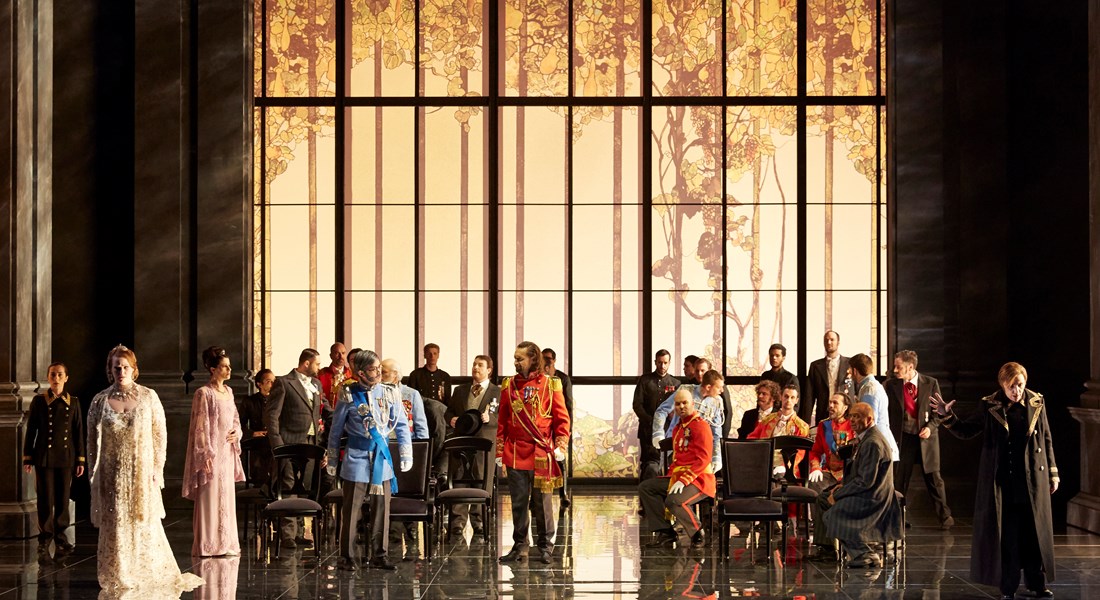Posted30 Jan 2017
- In
A Tale of Two Endings
This article first appeared in Opera Philadelphia’s Sounds of Learning™ book, which is distributed free to students in grades 5-12 in the School District of Philadelphia
Tancredi composer Gioachino Rossini was born in the small town of Pesaro located on the east coast of Italy along the Adriatic Sea. He came from a musical family; his mother sang and his father played the trumpet. As a result, Rossini spent much of his childhood in the theatres where his parents performed.
The young Rossini had a wonderful memory and a remarkable ear. At the age of 14, he went to Bologna Academy to study music at a prestigious institution which still exists today. That year he wrote his first opera, Demetrio e Polibio, and learned to play the harpsichord, trumpet, and violin. Rossini also had a beautiful voice and sang well enough to earn a good living from performing and composing before he was out of his teens.
During his lifetime, Rossini wrote three dozen operas, six cantatas, three pieces of sacred music, numerous songs and duets, a songcycle, and several instrumental works. All of this was done by the time he turned 37 years old.

Rossini was best known for his operas, which often fit into two main categories: comedy and drama. The name given to comedic opera during Rossini's time, opera buffa, first originated during the 18th century when comic opera was popular in Italy. Today, Rossini is celebrated as one of the great composers of the genre. The Barber of Seville and The Italian Girl in Algiers are just two of his comic operas that have become favorites of opera-goers today. While Rossini was musically a comedic genius, he also knew how to create a little drama. The counterpart to opera buffa is opera seria, or serious opera.
Rossini's contribution to opera seria began with Tancredi. The Gran Teatro la Fenice hired Rossini to compose a new opera as part of Carnival, the most celebrated public festival in Venice, Italy. La Fenice specifically asked for it to be an opera seria. In order to achieve this goal, Rossini partnered with local librettist, Gaetano Rossi. For the subject of their opera, Rossini and Rossi were drawn to Voltaire's tragic French play Tancrède. As the librettist, Rossi had the job of interpreting Voltaire's play and creating new text for the opera. This was the text that Rossini would eventually set to music. Within a matter of months, Rossini was finished. Premiering at La Fenice on February 6, 1813, Tancredi was a great success and proved that Rossini could go beyond comedy and master a different genre.
When Rossini and Rossi created Tancredi for La Fenice in 1813, they chose to tell the story in a slightly different way. In particular, they changed Voltaire's original ending so that the protagonist Tancredi, who has been badly injured in battle, would not die at the very end.
Instead, Tancredi would recover from his injuries and be united with his love Amenaide. However, when Rossini took his newly composed opera to a group of nobles in Ferrara, a small town northern Italy, it was requested that he stay true to Voltaire's dramatic ending. As a result, two versions of Tancredi exist today. Spoiler Alert: In Opera Philadelphia's production of Tancredi, you will see the opera as it was performed in Ferrara.
Tenor Steven Humes is Education Manager for Opera Philadelphia and sings in the Tancredi chorus
Leave your comment below.

 Facebook
Facebook Twitter
Twitter More
More